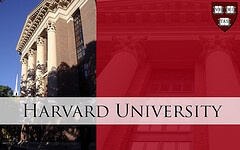Harvard University headlines the “largest cheating scandal in living memory” at an Ivy League institution to start the fall semester. This May, a teaching fellow identified a major collaborative effort, including plagiarized responses, on a take-home exam students were instructed to complete alone. And you thought your TA wasn’t paying attention.
Now, many students face punishments ranging from admonition to forced withdrawal for up to one year. The students’ names and years cannot legally be released and, to the disappointment of some, no one in Cambridge will be marked with a crimson letter “C.” Jay Harris, the dean of undergraduate education, starts off this semester leading investigative sub-committees. University president Drew Faust is concerned with fostering a “culture of honesty and integrity.”
The teaching fellow in an undergraduate class of about 250 students detected plagiarism and cheating on about half of the exams turned in. The type of class is unknown, there are students implicated in all grades, no one knows what will happen if any accused student has already graduated. Harvard administrators have gone on the record saying the investigation will go as long as necessary.
Cheating is wrong, kids. Keep your eyes on your own paper. Keep your answers to yourself. Pretty basic. But the take home test is the forbidden fruit of midterms and finals. William Charter, a junior studying Archeology at The George Washington University said, “Professors shouldn’t give out a take-home examination and not expect collaborative effort. Students will either consult their text books or consult their peers.” The potential for collaboration is almost too good to pass up, and I’d bet my morning cup of coffee this happens everywhere else, too.
So I have two questions. Does scoring between 600 and 800 on every section of your SAT and ranking in the top 10% of your high school class mean you won’t screw up? Not necessarily. Should the sloppy, dishonest work of half the students in some unnamed undergraduate class jeopardize the reputation of Harvard University and indicate the academic culture is no longer honest or characterized by integrity? Probably not.
Still, Katie White, a University of Georgia graduate with a major in Psychology, makes a good point. “I think that it shows that regardless of the prestige and the name of the university, these students are not any more moral than others students elsewhere,” she said. “They are still young and foolish and just because they go to Harvard it doesn’t mean that they are necessarily of a higher caliber than others. Regardless, it’s really sad and these students academic career can seriously be jeopardized because of an error in judgement.”
So what it all comes down to is this: don’t act stupid. Follow the instructions, and do your own work; we’re playing in the big leagues now.



















